Security companies dealing in wholesale stun guns must navigate complex state regulations, varying permit requirements, allowed device types, and advertising restrictions. Compliance involves stringent background checks, staff training, safety protocols, and meticulous record-keeping. Access to tasers is divided into limited and unrestricted states, with specific criteria for civilian ownership. Security companies must follow best practices including local compliance, robust inventory management, and responsible ownership culture to safely and legally utilize wholesale stun guns.
In the United States, civilian ownership of tasers (stun guns) is regulated by individual state laws. Understanding these regulations is crucial for both individuals seeking personal protection and security companies looking to incorporate stun guns into their operations. This article provides a comprehensive guide to navigating state laws on stun gun ownership, including legal requirements for wholesale purchases, eligibility criteria, permit and license acquisition, varying state access levels, and best practices for security companies. By delving into these aspects, we aim to equip readers with the knowledge needed to make informed decisions regarding civilian taser ownership and distribution.
- Understanding State Regulations on Stun Gun Ownership
- Legal Requirements for Wholesale Stun Guns Purchase
- Who Can Own a Taser: Eligibility Criteria
- Obtaining Permits and Licenses: A Comprehensive Guide
- Limited vs. Unrestricted Access States: Implications
- Security Companies and Stun Gun Distribution: Best Practices
Understanding State Regulations on Stun Gun Ownership
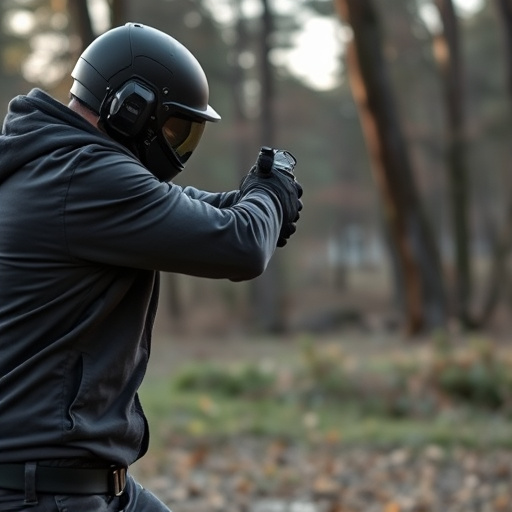
Understanding State Regulations on Stun Gun Ownership is a crucial step for individuals and security companies considering wholesale stun guns. Each state in the US has its own set of laws and requirements governing the ownership, possession, and use of stun devices, commonly known as tasers. These regulations can vary widely from one state to another, affecting everything from who can legally own a stun gun to where it can be carried and how it can be used.
Security companies involved in wholesale stun guns must familiarize themselves with these state laws to ensure compliance and mitigate potential legal risks. For instance, some states require individuals to obtain special permits or licenses to possess stun guns, while others may have restrictions on the type, power level, or capacity of stun devices allowed for personal use. Additionally, there might be rules about where and how stun guns can be advertised, sold, or displayed, as well as guidelines for law enforcement officers’ use of force involving these instruments.
Legal Requirements for Wholesale Stun Guns Purchase
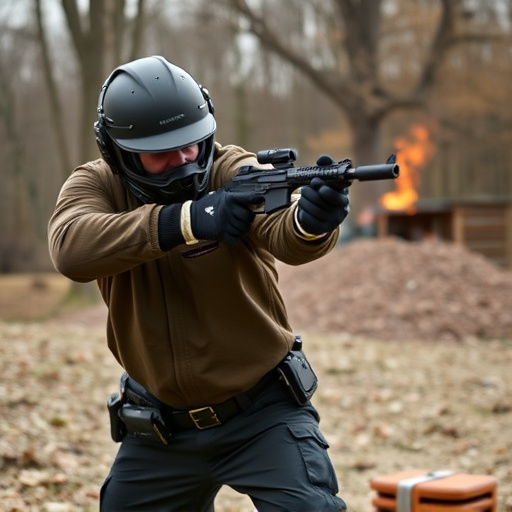
In many jurisdictions, the legal requirements for a wholesale stun gun purchase are stringent, reflecting the sensitivity surrounding non-lethal force tools. Security companies looking to acquire wholesale stun guns must meet specific criteria to ensure responsible and legal ownership. These include obtaining necessary licenses and permits, demonstrating a legitimate business need, and agreeing to comply with all applicable state and federal regulations.
Compliance involves rigorous background checks, training programs, and safety protocols. Security company owners or authorized representatives must be trained in the proper use, handling, and storage of stun guns to mitigate risks and ensure their effective deployment as security measures. Additionally, maintaining detailed records of purchases and inventory is essential for transparency and accountability.
Who Can Own a Taser: Eligibility Criteria
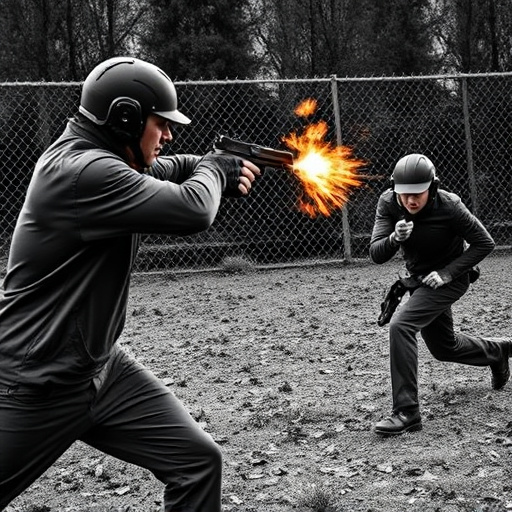
In many states, the ability to own a taser is not universally open to everyone. There are specific eligibility criteria that prospective owners must meet. Typically, individuals who wish to possess a taser must be over a certain age, often 21 or older, and of sound mind. Some states also require applicants to pass a background check and have no significant criminal history.
Security companies looking to acquire tasers for their employees may find themselves navigating distinct regulations. They often need to register as legal businesses and comply with wholesale stun guns for security companies-specific requirements. These might include additional training programs for staff, specific storage protocols, and regular maintenance checks to ensure the devices remain safe and functional.
Obtaining Permits and Licenses: A Comprehensive Guide
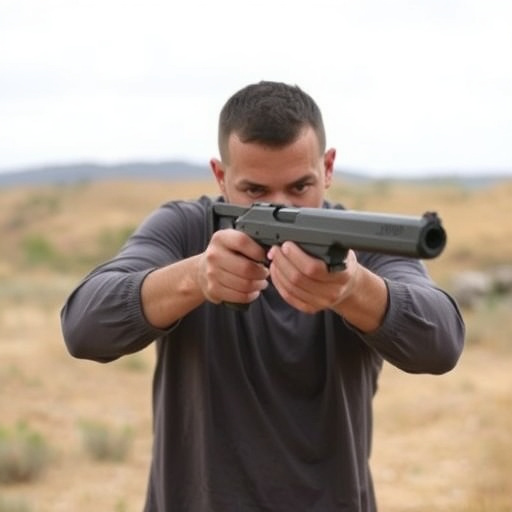
Obtaining permits and licenses is a critical step in civilian taser ownership, as it ensures responsible and legal use. The process varies by state, but generally, individuals seeking to purchase a taser must undergo a background check. This check screens for any criminal history or red flags that could disqualify them from owning a stun gun. Many states also mandate training courses specific to taser usage, covering safety protocols, de-escalation techniques, and legal implications.
For security companies looking to equip their personnel, wholesale stun guns for security companies are readily available, but they must adhere to local regulations. Obtaining licenses for bulk purchases allows businesses to legally arm their guards while ensuring compliance. Each state has its own set of rules, so security firms should research and understand the legal framework in their region to facilitate a smooth permit application process.
Limited vs. Unrestricted Access States: Implications
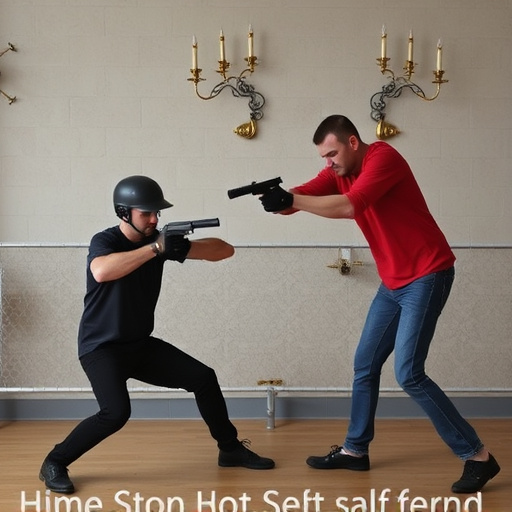
In many states, the availability and accessibility of stun devices like tasers are categorized into two main types: limited access and unrestricted access. Limited access states restrict the sale and possession of tasers to specific individuals or for particular purposes, such as law enforcement agencies or security companies specializing in wholesale stun guns for security companies. This regulation is often driven by safety concerns and the potential for misuse. On the other hand, unrestricted access states allow citizens to purchase and own tasers without significant restrictions, making them more readily available to the general public. The implications of these differences are profound, shaping how easily individuals can arm themselves with stun devices for personal protection or professional duties.
Security Companies and Stun Gun Distribution: Best Practices
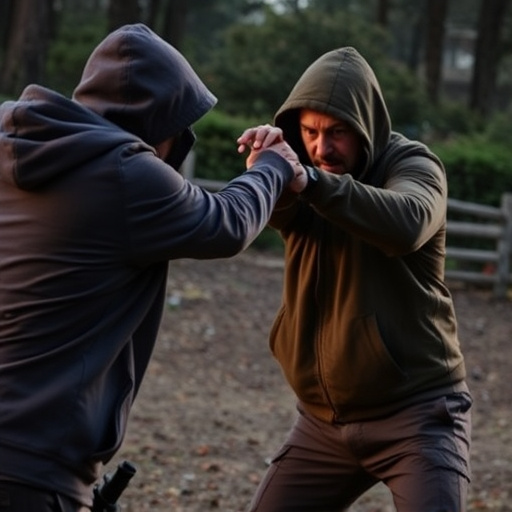
Security Companies and Stun Gun Distribution: Best Practices
In many regions, civilian ownership of tasers is strictly regulated, with specific requirements for background checks, training, and storage. However, security companies play a unique role in this landscape. For these businesses, wholesale stun guns can be a valuable tool for enhancing security measures, but they must adhere to stringent best practices. This includes ensuring that all employees receiving stun guns undergo comprehensive training on their safe use and are familiar with local laws and regulations regarding their deployment.
Moreover, security companies should implement robust inventory management systems to track the distribution of wholesale stun guns. This not only ensures accountability but also aids in preventing unauthorized access or misuse. Additionally, regular maintenance and inspection of these devices are essential to guarantee their reliability during critical situations. By fostering a culture of responsible ownership and handling, security companies can maximize the benefits of stun gun deployment while mitigating potential risks.
In navigating the complex landscape of civilian Taser ownership, understanding state laws is paramount. From eligibility criteria to permit acquisition, this article has provided a comprehensive guide to help individuals and security companies make informed decisions regarding wholesale stun gun purchases. As regulations vary widely across states, it’s crucial to stay updated on both limited and unrestricted access policies to ensure compliance. For security professionals, prioritizing safety and adhering to legal requirements when distributing stun guns is essential for fostering a secure environment while avoiding legal complications.
